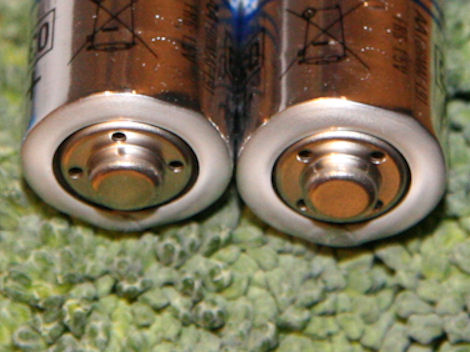Increasing demand for electric vehicles and portable electronic devices is driving a parallel need for environmentally friendly batteries.

But combining improved performance with safe, eco-efficient, operation is a tall order. Michel Armand and his team from the Universite de Picardie Jules Verne in France showed that a sustainably sourced organic version of the ubiquitous lithium-ion battery could provide the answer (Nature Materials, DOI:10.1038/NMAT2372).
Armand’s battery, built around a novel lithium-hydrocarbon anode, delivers up to three times the typical minimum energy capacity needed for practical applications but is environmentally friendly too.
The organic acids used to make the electrode are readily synthesised on a sustainable basis from abundant recycled plastics. They also appear as a metabolic by-product when bio-organisms act on common hydrocarbons like benzene.
The team say their device generates less heat and is more thermally stable compared with conventional Li-ion batteries with titanium or pure carbon electrodes. That makes it an attractive option for hybrid vehicles, where the presence of petroleum fuels alongside electricity makes battery meltdown unthinkable; w e glimpsed the consequences of thermal instability in 2006, when a manufacturing defect in Sony laptop batteries caused some devices to burst into flame.
Lithium-ion batteries must not show memory effect, so they retain their capacity when recharged from a partly charged condition. In the tests, performance of the organic battery dropped off only slowly during repeated recharge cycles, indicating a desirable reversibility of the chemistry. Before-and-after-charge x-ray diffraction measurements confirmed the structural stability of the electrode.
The team also say their device is lighter, the novel chemistry allowing replacement of heavier copper components with aluminium ones elsewhere in the battery. That makes all the difference in an electric vehicle where every gram counts.